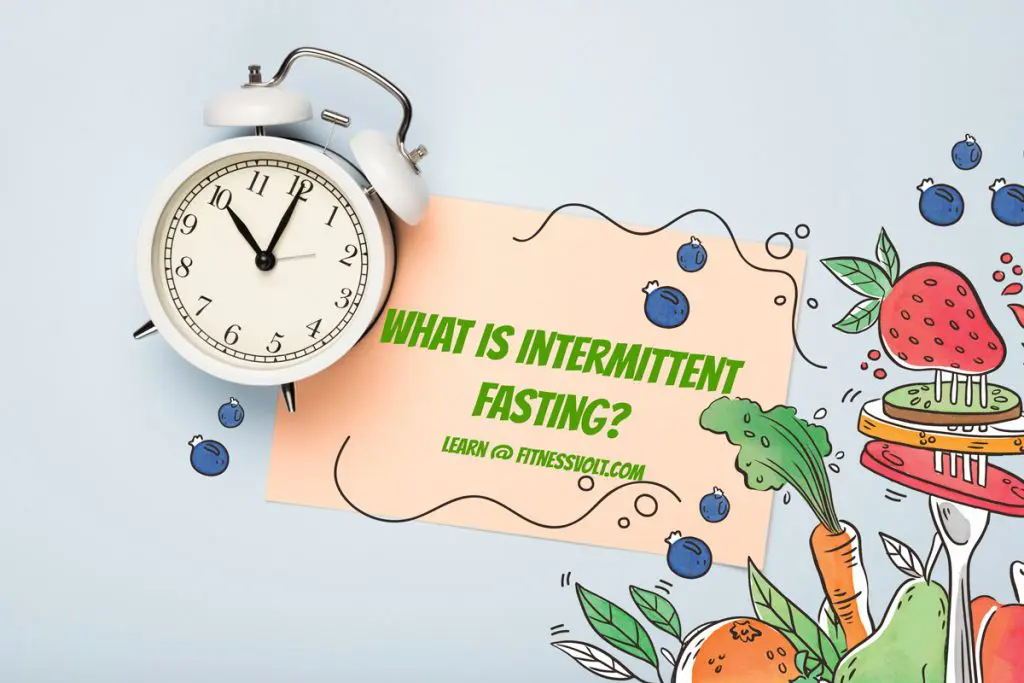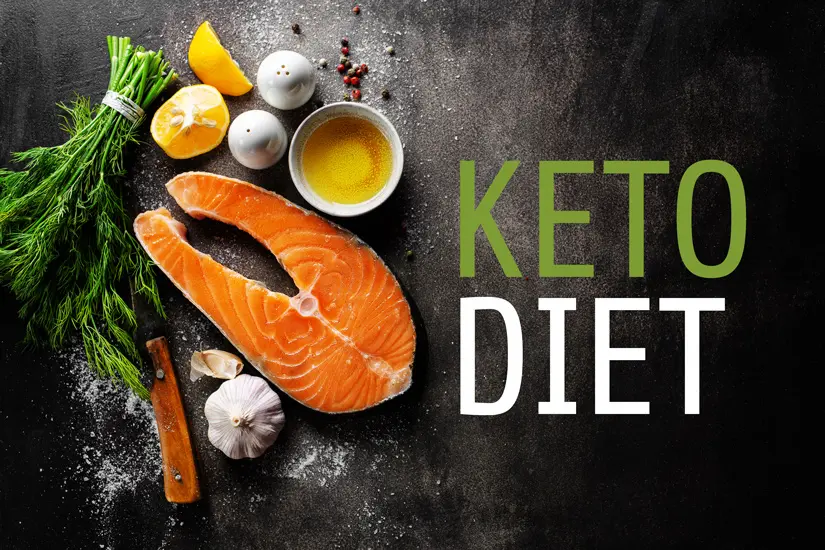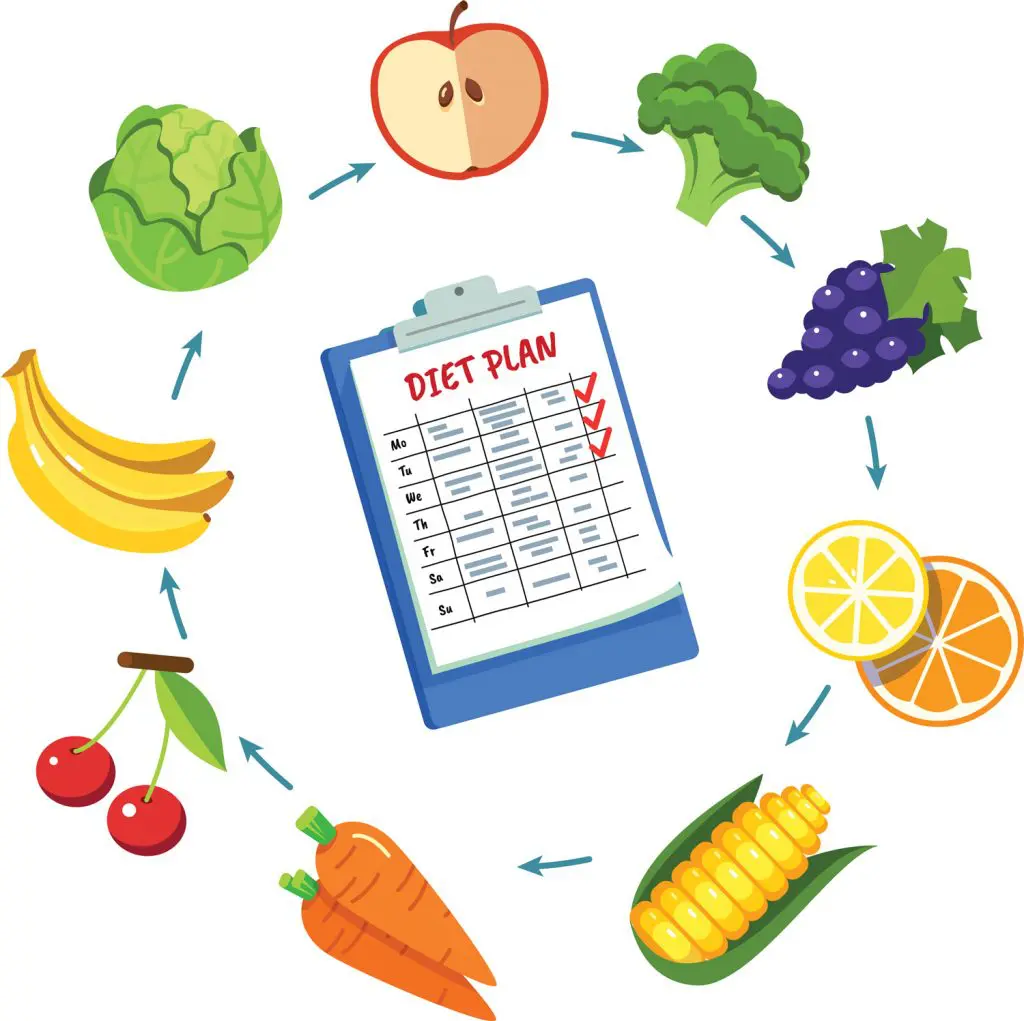Intermittent fasting (IF) is a way of life for a lot of people but on the other hand, many are becoming increasingly interested in experimenting with this unconventional style of eating.
It’s implemented by people all over the world and the benefits are undeniable. But, the reasoning for much of the obvious positive effects may not be as simple as you, we, and everyone might think.
Now, we’ll get into that shortly but here’s a guide for beginners.
Also, there’s sufficient evidence to suggest that fasting for long periods can be detrimental to women’s hormones since women are very sensitive to extreme calorie-restriction for an extended period. Although it will vary from person to person.
But that’s why we highly advise seeking the advice and guidance from a medical professional to ensure you maintain optimal health during the process. As for healthy individuals, it’s important to be aware of any serious, or prolonged side effects.
Intermittent fasting isn’t for everyone which everyone should know regardless of how many testimonials there are.
Level Up Your Fitness: Join our 💪 strong community in Fitness Volt Newsletter. Get daily inspiration, expert-backed workouts, nutrition tips, the latest in strength sports, and the support you need to reach your goals. Subscribe for free!
In this Intermittent Fasting Guide, we will discuss:
- What is intermittent fasting?
- How Does IF Work?
- Gaining Muscle
- IF and Keto Dieting
- Intermittent Fasting For Me
- Intermittent Fasting For Women
- Side Effects of IF
- Staying on Track
- FAQs
- Tips For Effective Fasting
What Is Intermittent Fasting?
It’s obviously a form of fasting which has been used for centuries whether for health, religious reasons, medical exams/procedures, and more.
And during the span of time, food wasn’t always a readily available resource as much as it is today.
But the norm for current societal standards is to have a meal every few hours and never skip out on the most important meal of the day which is… breakfast, right?
…The common belief is that while we sleep, our bodies are in a naturally fasted state and therefore, we should jump-start our metabolism and normalize blood sugar levels by consuming a hefty, wholesome meal to fuel our bodies and minds for the day ahead…

But this is nothing like what intermittent fasting is. In fact, you’ll go a large part of the day without eating anything and then you have a specific period where you can eat freely.
And IF doesn’t really fall under the category of diet either. But rather, it’s a pattern of eating which has various branches so it doesn’t just involve a single method.
And this really depends on the goal, individual, etc.
But the reason for following the IF strategy varies among individuals since we all don’t have the exact same goals.
Reasons for doing IF…
- Weight/fat Loss
- Improved health
- Diet simplicity/convenience
Weight loss, health, and the simplicity of being able to follow a nutritional routine for achieving a certain goal are the main reasons for doing IF.
Also, you can implement intermittent fasting for a certain period of time, on and off, and some people choose to make it a regular part of their lifestyle. So, there’s no perfect way to do it either.
But as for the different types of methods here are a few popular ones…
16/8 Regime
If you’re somewhat familiar with the process then this is the most popular way to implement an IF routine.
To put it simply, 16/8 involves fasting for 16 hours and then eating for the remaining 8 hour time period. And if you notice, 16 + 8 = 24 hours if you didn’t realize it at first.
One example of how do the common 16:8 protocol is fasting from 8 PM to 12 PM the following day (16 hours) and then you’ll eat within the window between 12 PM to 8 PM.
There are many different ways to do this but a lot of people choose to skip out on dinner and breakfast so that you sleep for most of the fasting period. But everyone’s schedule is different and you have to find which way works best for you.
Also, not everyone will utilize an eight-hour timeframe to eat. Some will choose to eat for four and even six hours. And there’s even a 14:10 method to consider which is also an option in our IF calculator…
Check out our Intermittent Fasting calculator to make reaching your health/fitness goals a bit more stress-free; which also includes several different methods of IF.
OMAD
The OMAD or One Meal A Day Approach is pretty straightforward.
Fast for 23 hours or so and then eat for the remaining hour of the day (23:1). So, you can choose any hour of the day to eat based on your schedule, preference, and during a good time that it’ll be conducive to your goals.
There are also a few different variations of this which include 22:2, 21:3, and 20:4 but 23:1 is the most common.
Some people may only eat once a day as a daily routine long-term but it’s best for most people to only do OMAD in an alternating fashion.
See our guide on OMAD.

24-Hour Fast or Eat-Stop-Eat
This method involves not eating for 1 or 2 entire days per week. For example, you can fast from breakfast to breakfast and then you should resume your normal eating schedule on non-fasting days. This eating pattern can be particularly difficult for a lot of people due to the side effects of going a whole day without eating anything.
But, the effects should subside for most people doing it correctly.
And some people may need to shorten up the fasting window for any IF method whether you choose to stick with this route or you just want to test the waters.
There’s no set rule for IF except for how each individual responds.
How Does IF Work?
While there are a few different theories about how intermittent fasting works, and we also know that there are straightforward processes in the body that we know to occur during IF.
Weight Loss / Fat Loss
For the average individual who eats more frequently throughout the day (includes snacking), IF cuts down on total daily caloric intake. Therefore, weight/fat loss ensues which is expected.
It takes roughly 3,500 calories to gain or lose a pound.
So, by determining your total daily energy expenditure (TDEE) and keeping your calories below maintenance every week through exercise, dieting (or both), you’ll either keep the weight off or continue to shed the pounds.
Although, you may/will hit a plateau which at this point weight loss isn’t so simple depending on the individual, habits, and how much weight loss is desired.

But by cutting out a meal or two from your normal eating schedule, you’ll definitely be in a better position to create some physical changes. But to what extent and how long this can be maintained will depend as there are many variables that have to be considered based on each individual.
Now, as for the actual process of ‘fat’ loss when following IF, when the body goes for a prolonged period without a supply of calories (energy), it will use up what’s left of your glycogen stores first, followed by the fat stores for energy, therefore resulting in fat loss and ideally preserving muscle tissue because protein is still present and sufficient for this purpose.
Our bodies will transition into a state of ketosis when carb stores are very low which allows for the creation of fat ketones in the bloodstream.
This process is also known to occur during keto; which is a very popular weight-loss method.
But fasting also lowers the hormone insulin (makes fat loss easier) and changes some metabolic factors as a result.
One study found that short-term starvation actually increases energy expenditure in a resting state by increasing serum norepinephrine (fat-burning hormone). (1)
Muscle Growth / Preservation
Since intermittent fasting has been shown to increase Human Growth Hormone (HGH) levels (even by as much as 5-fold), hypertrophy and even fat loss benefits would be expected. (2)
This hormone increases lean mass and fat loss in both men and women but it’s also an important hormone in the aging population who experience a loss of muscle mass from too little HGH. (3, 4)
As for the nutritional aspect of muscle-building and retention, you should always keep protein relatively high along with having a decent amount of carbs and fat too based on how your body responds to certain macronutrient ratios.
And interestingly, one piece of scientific literature explained that intermittent fasting can be better than regular calorie restriction for muscle retention. (5)
So, we’re convinced from this evidence that someone who chooses IF shouldn’t have an issue gaining or preserving muscle mass if protein intake is sufficient since it the most important macronutrient for hypertrophy.
Protein contains important amino acids which act as building blocks for body tissue and leucine especially is most responsible for muscle protein synthesis. (6, 7)

Health
Mark Mattson, a senior investigator for the National Institute on Aging, part of the US National Institutes of Health, believes there are many different theories for the potential physiological benefits of fasting. (8)
Well, this is quite obvious since the science still is not entirely conclusive hence the reason why some believe in it and some are highly opposed. And both sides can provide an educated argument for why they are or are not a fan of intermittent fasting.
But, where staving off disease, reversing certain ailments, and improving certain health factors is concerned, the evidence is definitely becoming more promising.
“The one that we’ve studied a lot, and designed experiments to test, is the hypothesis that during the fasting period, cells are under a mild stress,” explained Mattson.
“And they respond to the stress adaptively by enhancing their ability to cope with stress and, maybe, to resist disease.”
Well, this is certainly one theory and there could be something to it.
Now, there’s evidence that IF has positive effects for inflammation, insulin resistance, cognitive health, heart health, aging, and even cancers.
But before we give all glory to the actual period of being in a fasting state for eliciting all of the promising effects, we have to consider one variable which is associated with many of the same benefits.
And it’s the overall reduction in calories which may play a big role in what we believe to be the reason why intermittent fasting is so effective in many ways…
In fact, intermittent fasting has shown to elicit similar effects for weight loss, insulin, and other biomarkers of health when compared to a plain old continuous calorie-restricted diet.
Many animal studies show that fasting without an overall reduction in calories does not improve biomarkers for disease and it does not result in weight loss.
But again, there are different variables which we could consider however we do have to take into account the many different factors associated with the potential benefits of intermittent fasting.
Not to mention most studies on this type of fasting have been concluded from testing using animal subjects. (1)
Gaining Muscle / Weight With Intermittent Fasting
Anyone can gain muscle/weight while following IF.
But you’ll have to condense your daily caloric intake within the 8-hour window if you’re following the 16:8 protocol.
However, if doing a more limited fast where you only eat for an hour or two, then you can still gain muscle but it’s going to be a much slower process. Therefore, if you’re serious about gaining as much muscle as you can and in a decent time frame then methods like OMAD probably won’t be your friend unless you’ve already built a very solid base and are at a low body fat percentage.
But back to the 16:8 approach, you may have to get a little creative with your food choices to ensure you’re eating enough calorically dense foods as you continue to put on more muscle mass.
Level Up Your Fitness: Join our 💪 strong community in Fitness Volt Newsletter. Get daily inspiration, expert-backed workouts, nutrition tips, the latest in strength sports, and the support you need to reach your goals. Subscribe for free!
But you will need plenty of protein from your foods to stimulate muscle hypertrophy so be sure quality is a priority. The slow-digesting proteins contained in foods are ideal for building muscle when you’re not eating often and supplements will help as well.

Some quality, healthy foods for muscle gain include:
- Grass-fed beef
- Chicken thighs
- Fatty fish (salmon, herring, etc)
- Eggs
- Nut butters
- Healthy oils
- Avocadoes
- Milk (low-fat)
- Potatoes
- Rice
- Homemade shakes
Here are some great slow-digesting casein protein products to help support and sustain muscle growth for a longer period of time.
Intermittent Fasting and Keto Dieting
You’re probably wondering if you can combine the two seeing as how popular both are.
If you didn’t know, keto is basically a moderate to high protein, very low-carb, and high-fat diet which forces your body to tap into the fat sources for energy rather than glucose and glycogen.
And we previously mentioned that when you don’t eat for 10 to 16 hours (like during intermittent fasting), the body naturally goes into ketosis.
Well, these are the two ways that you can create a state of ketosis in the body.
And yes, you can do both together because if you’ve already made up your mind that you’d like to follow the keto diet (hence the reason for this question) then the process will be simpler since intermittent fasting is conducive to ketogenesis.
And all you have to do now is follow the necessary macronutrient ratios required for keto during the window in which you can eat.

As far as the benefits go, keto has been long used to successfully treat epilepsy in children. But there’s strong evidence for brain health, cancers, heart health (lowering triglycerides and bad cholesterol) and also preventing and even reversing type 2 diabetes due to a reduction in carbohydrate intake. (9, 10, 11)
Research has even shown a low-carb diet to result in better weight loss than a calorie-restricted low-fat diet. (12)
And one study concluded that keto-type diets reduce hunger and food intake significantly at least in the short-term. (13)
Either way though, if your overall daily caloric intake is less than what your body needs to maintain your current weight then you’ll lose weight. But not only that, from what we previously discussed there seems to be a correlation between fewer calories and disease-related risk factors.
Although carbohydrates can apparently have a direct impact on certain aspects of health.
The Keto diet is not for everyone though. It can be very hard to stick with for many people. And for others, it may not be the best diet where maintaining optimal health is concerned just like any diet which varies between individuals.
But recent studies do support its safety and efficacy during a more prolonged duration of implementation from what was previously believed. However, in this case, only healthy individuals should consider this approach in this manner. (14)
Keto-Flu is also common with this type of diet due to the reduction in carbs and it’s usually the common side effects like headaches, nausea, fatigue, sleep difficulty, etc.
But there’s no cause for alarm unless these issues persist for more than two weeks max. So, it’s not actually like a flu that you’re probably thinking of.
But that’s why a gradual transition and staying hydrated is very important to alleviate many of the common symptoms.
Check out our keto calculator for easier macronutrient tracking.
Is Intermittent Fasting For Me?
If you are a healthy individual who knows that you can stick to a restricted eating plan without quickly reverting back to your normal eating habits, then IF might be for you.
Any change in a nutritional plan will take a little bit of willpower and discipline but we can assure you that mastering this aspect of your daily life will carry over into the discipline you need for any other task/s in life.
IF can definitely help you to lose weight, not to mention there are health benefits associated with this eating pattern. And you may even be able to save some money and not stress so much about eating every few hours since you can use the time which you’d normally take your prep your food to do other more productive things (It’s a win-win situation).
Also, if you’re into the muscle-building thing then the big increase in HGH production won’t hurt either.
Plus, the health benefits from fasting (even if it’s a result of lower caloric intake) are one big reason to implement this eating schedule even if just short-term.
But, as with anything else in life, one thing is not for everyone. So, you’ll have to take into consideration the potential pros and cons and you have to be open-minded.
Intermittent Fasting For Women
Men and women are very different in many ways…
And intermittent fasting is just one example of this. In fact, evidence suggests that women may not benefit to the same extent as men.
Besides research showing adverse effects on glucose tolerance in women when compared to men, changes to the menstrual cycle have also been observed. (15)
Aggressive calorie restriction (long and frequent periods of fasting) affects women differently, affecting the reproductive hormones luteinizing hormone (LH) and follicle-stimulating hormone (FSH); which are secreted with the help of gonadotropin-releasing hormone (GnRH). (16)

As a result, many health problems can ensue which include decreased bone mass, cardiovascular complications, and mental health decline.
And women should probably skip out on IF altogether if pregnant, very stressed, or if dealing with any health concerns, whether physical or mental.
But, it is highly recommended that women do not adopt an aggressive calorically-restricted diet for prolonged periods most importantly. But rather, they should do shorter fasts for fewer days which is a much safer approach which will elicit most of the same benefits as men.
A few approaches that should be a bit safer and more effective for healthy women are the 14:10 protocol and also the 5:2 approach (eat normally for five days and restrict calories to 25% of total daily intake for two days) as well.
But women (and men) who do implement any type of fasting should get blood work done regularly to ensure they’re maintaining optimal health.
Are There Any Side Effects Of Intermittent Fasting?
To be very clear, there are going to be unpleasant side effects with any dietary/routine changes.
Although, to what extent depends on a few different factors like how quickly you transitioned, the individual’s current physical health, mental factors, food choices, and quantities, etc.
You should ease into intermittent fasting while staying sufficiently hydrated and really thinking about cleaning up your diet if it’s not already up to par.
But one study found that even two days of calorie restriction does not adversely affect cognitive performance, mood, activity, and sleep. (17)
Common side effects of intermittent fasting include…
- Headaches
- Lack of energy
- Lethargy
- Hunger
- Overeating
- Menstrual issues
- Unstable blood sugar
However, for most people, these symptoms should begin to fade until you’re feeling completely normal again. If the symptoms persist beyond around a few weeks then it’s time to reevaluate.

Getting used to cutting down on your eating frequency will be more challenging for others and this is where you’ll really have to decide whether or not you have the mental fortitude to stick this thing through.
Skipping breakfast can be particularly challenging for many people but fret not… although we are at the mercy of a hunger hormone called Ghrelin upon rising (and even before that), it eventually backs off and won’t pester you to enjoy that tempting morsel anymore. (18)
But the point we’re trying to make here is that you’re not dying when your stomach is telling you it needs to eat in the morning during the transitional period!
And have some self-control when it comes time to eat. Make sure to predetermine your portions to your necessary caloric requirements so that you do not overindulge when your window arrives.
You don’t want to develop an unhealthy relationship with food which can also result in an eating disorder.
Staying on Track
Let’s face it, a large portion of the people who begin a different nutritional regime drop out shortly after or they wouldn’t see themselves doing it again.
“It’s human nature for people to want to reward themselves after doing very hard work, such as exercise or fasting for a long period of time, so there is a danger of indulging in unhealthy dietary habits on non-fasting days,” explained Dr. Frank Hu, chair of the department of nutrition at the Harvard T.H. Chan School of Public Health”. (19)
If not careful, many followers of IF can become ravenous due to their appetite hormones shifting into overdrive from a lack of food and habitual indulgences. But this is why a strategy is very important beforehand.
And although there is the popular 16:8 approach, it’s not ideal for everyone and even psychologically it can be very intimidating.
But the beauty in having different options is that someone who does not want to track their calories and eating can implement a method which works best for them.
And in this case, many people experience many of the associated benefits in a more stress-free manner.
Common Questions About Intermittent Fasting
Can I train fasted? If so, what about having enough energy to maintain intensity and duration?
Earlier we talked about how fat is used for energy when glucose and glycogen has been used up or is very low. Well according to a study, training with a limited supply of carbohydrates actually stimulates an adaptation within our muscle cells to allow for energy production through fat oxidation. (20)
So to put it simply, the more you train in a fasted state, the better your body will adapt to supply energy from another fuel source.
But you also definitely want to make sure you’re sufficiently hydrated since water does play a big role in strength and energy.
Is There A Specific Amount of Food I Should Be Eating?
Eat according to what you’re trying to achieve.
So, if your goal is to gain weight, you should be eating a small surplus of calories. If you desire to lose weight, eat fewer calories than your body needs to maintain your current weight.
Nothing should change here as these are the only two ways to accomplish either goal and whether you fast or not your body still requires the necessary amount of nutrients.
Won’t Intermittent Fasting Slow My Metabolism and Cause Fat Gain?
Nope. You’re probably thinking this is the case since it has been pounded into the heads of people trying to lose weight.
Well, the truth is that a lot of people fast regularly and even longer than most of the methods with IF… and they’re not fat are they? Nope!
It would take some serious calorie restriction day after day to achieve this. But with intermittent fasting, it’s not like you aren’t eating.
Now, you definitely don’t want to starve yourself and you should eat a decent amount of calories during the eating period to sustain your everyday activities.
So, if you’re doing this thing right then you won’t have to worry about screwing up your metabolism and going into starvation mode.
Can I Still Maintain and Build Muscle With Intermittent Fasting?
Yes, of course.
Like we said, fasting is great at preserving lean muscle tissue and one previously-mentioned study showed it to preserve muscle even better than a normal, calorie-restricted diet.
Also, according to research, protein intake spread out over several meals throughout the day is not necessary for overall maximum muscle-building purposes. In fact, one study concluded that the more protein per meal, the better for promoting anabolism. (21, 22)
Although, this is in relation to your overall daily protein requirements based on your goals.
This means you can eat a lot of protein when you’re able too and it’ll be used up for the repair and building of muscle tissue. So… don’t fret!
And train according to your goals. For strength and mass, implement progressive overload by doing compound, multi-joint lifts which require more overall muscle recruitment as this is more efficient than isolating each muscle often.
This is not only more efficient but you’ll gain more mass and strength overall plus these exercises are arguably better for developing and improving function, joint stability, and even full-body coordination which will carry over into everyday activities and sports as well.
Recommended compound exercises include:
- Squat
- Deadlift
- Bench press
- Pull-ups/chin-ups
- Rows
- Overhead press
You can incorporate variations, of course, as not everyone can safely and effectively perform the most basic versions of the above exercises for whatever reason.
For more endurance type activities, make sure to drink lots of water and either keep your carbs and/or fats higher for sustained energy.
Won’t I Get Hungry Not Eating For Hours?
Why we think we’re going to starve by not having the luxury of being able to have a meal every few hours is just crazy!
But in our high-calorie consuming society, we have conditioned ourselves to crave food constantly with all of the delectable and very accessible options.
However, it wouldn’t take long to adjust to the process of fasting with some practice. Not to mention, thousands of people follow this eating pattern and we know for sure that this wouldn’t be the case if it meant that you’d have to starve yourself.
What Kinds Of Food Can I Eat?
There’s no rule for what you can eat while following IF. But healthy options are recommended for your overall health and the nutrients that these foods supply to your body.
Not to mention, you’re still going to feel like crap eating junk foods high in fats and sugars. Plus, eating a lot of sugar for 8 hours and then fasting for a prolonged period of time can definitely make you feel not so great.
Although, you don’t always have to be perfect all of the time as long as you’re achieving a healthy eating regime for the majority of the time.
What About Beverages?
You can have no-calorie beverages like coffee, teas, and anything that has, well… no calories.
What If I Accidentally Mess Up?
It’s ok. You can try again tomorrow and the more you do it the less likely you’ll be to mess up next time and eat something that you didn’t intend to or eat when you’re not supposed too.
Intermittent fasting is just a form of fasting and if you’re doing it often, then you can make up for the mistake.
Tips For Effective Intermittent Fasting
To ensure you get the most out of intermittent fasting while making the process as easy as possible for yourself, here are a few tips we can offer.
Listen To Your Body
As with any diet, it’s important to be observant regarding how your body is responding. Just because intermittent fasting is one approach for weight loss, it doesn’t mean it’s absolutely going to work for you.
But, you do have to give it some time and be consistent if you want to experience the potential benefits.
Write down your progress as well and make note of any changes.

Get More Active During a Fasted State
Although results will vary between individuals, many people do experience weight/fat loss benefits from exercising during the fasting portion of this eating pattern.
And this goes back to the body tapping into those fat stores for energy, therefore… burning more fat.
Take a walk or do some light cardio while fasted or engage in an aerobic activity within your capabilities.
Have Realistic Expectations But Be Optimistic
In other words, don’t think you’re going to experience life-changing results in a week, or at all for that matter.
What you get out of something is the result of what you put into it, but by the same token, IF isn’t for everyone. It’s really that simple.
Modify Your Diet To Your Lifestyle/Schedule
We can’t give you an exact blueprint for how to structure an intermittent fasting routine. Therefore, you’ll have to figure out how you can best implement this strategy.
Eat small meals if it best fits your goals, or up your calorie intake to align with what you’re trying to achieve.
Also, adjust your macros as needed. For example, eat more protein for muscle-building, lower your carbs if not as active, and either cut down on or increase your fats for more energy.
Learn everything about intermittent fasting
- How Long Until Intermittent Fasting Works? A Realistic Timeline for Results
- When Does Your Body Start Burning Fat with Intermittent Fasting?
- 14/10 Intermittent Fasting: The Simple Hack for Better Health and Weight Loss
- The Ultimate Guide to Alternate-Day Fasting: Boost Metabolism, Lose Weight, & Feel Great
- Intermittent Fasting and Exercise: Should You Work Out on an Empty Stomach?
- 6 Surprising Facts About Meal Timing and Metabolism
- Forget Eating Before Workouts — Do Fasted Training for Increased Fat Oxidation
- Is Intermittent Fasting Safe for You? Here’s What the Experts Say
- Is Fasted Cardio in the Morning Effective? Here’s What the Experts Say
- What Are the Long-Term Effects of Intermittent Fasting? Here’s What the Experts Say
- How Much Fasting Is Too Much?
- The Role of Fasting in Bodybuilding: Benefits and Drawbacks
- 7 Nutritionist Approved Intermittent Fasting Plans for Beginners You’ll Wish You’d Known About Sooner
- 6 Nutritionist Approved Meal Ideas for Breaking Your Intermittent Fast You’ll Wish You’d Known About Sooner
- Benefits of a 72 Hour Fast: Unlock Cellular Repair, Weight Loss, and Lower Blood Sugar Levels
Final Thoughts
We truly hope you got something out of this beginner’s guide to intermittent fasting if you’re considering following this method.
There are benefits, disadvantages, and it may not be as effective or safe for women as it is for men when implemented to the same extent. But, there are several different ways to do this thing and if you decide too, then be sure that it’s something you can stick too.
And you don’t have to do it for long either. Cycles of IF are effective and recommended in fact. But make sure to get regular check-ups and ideally blood work to ensure you maintain optimal health.











